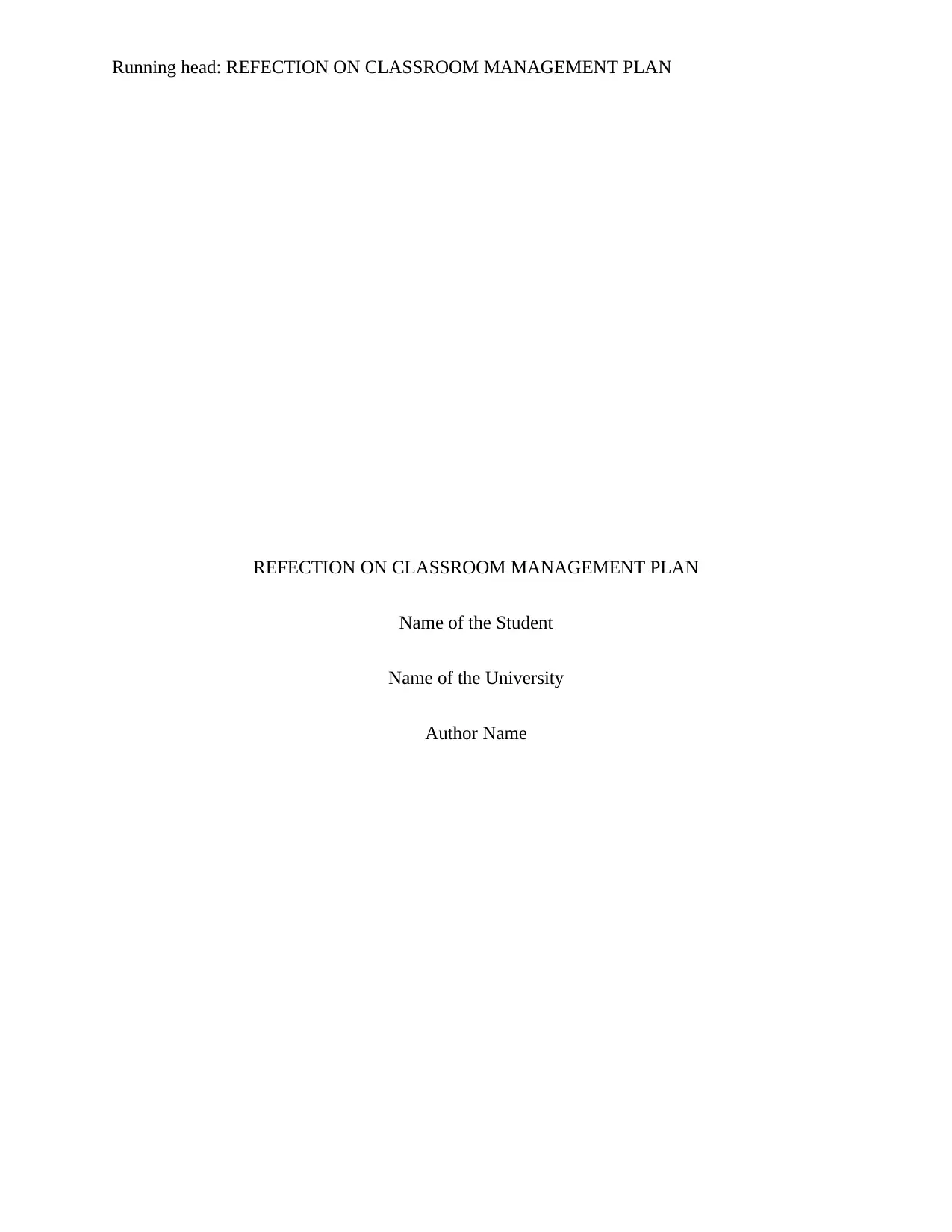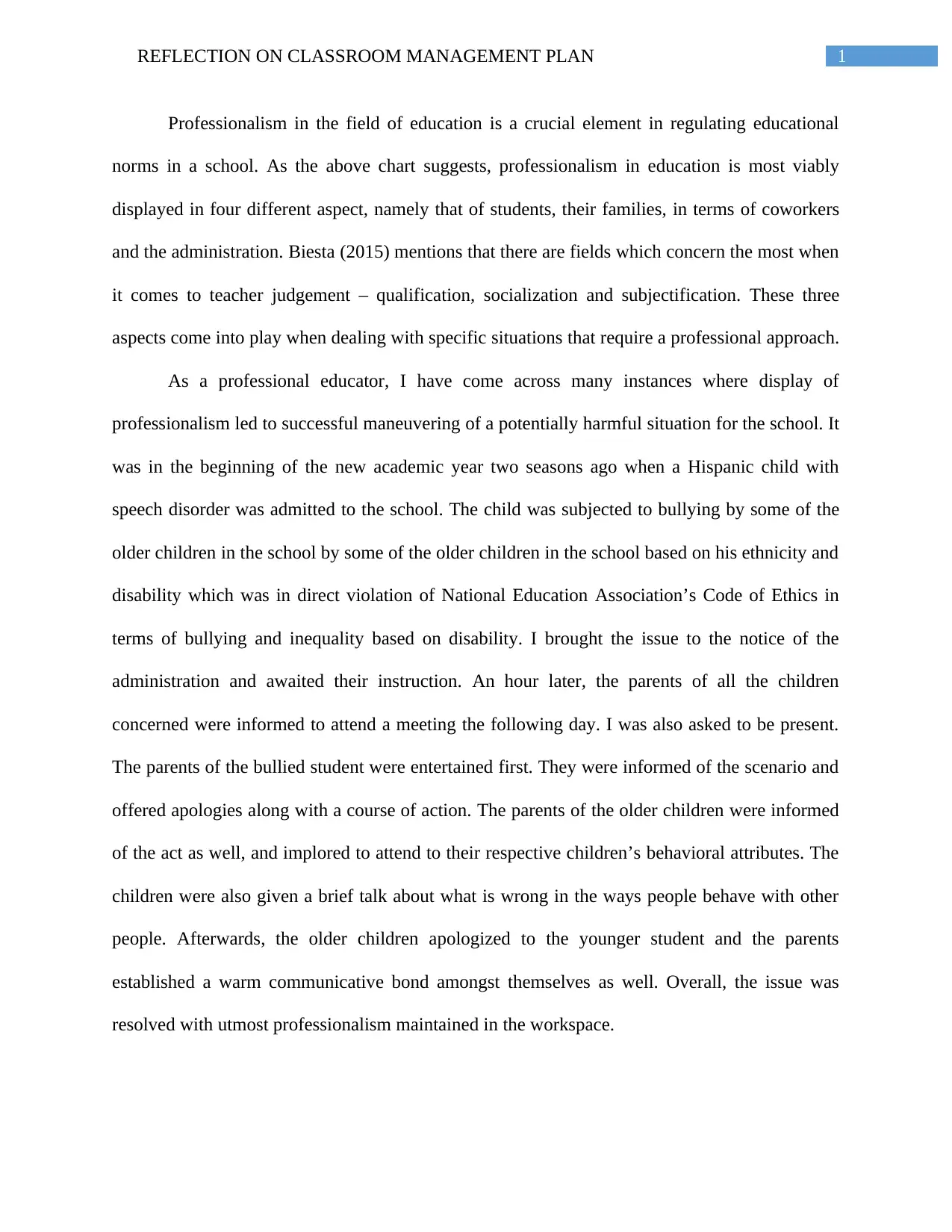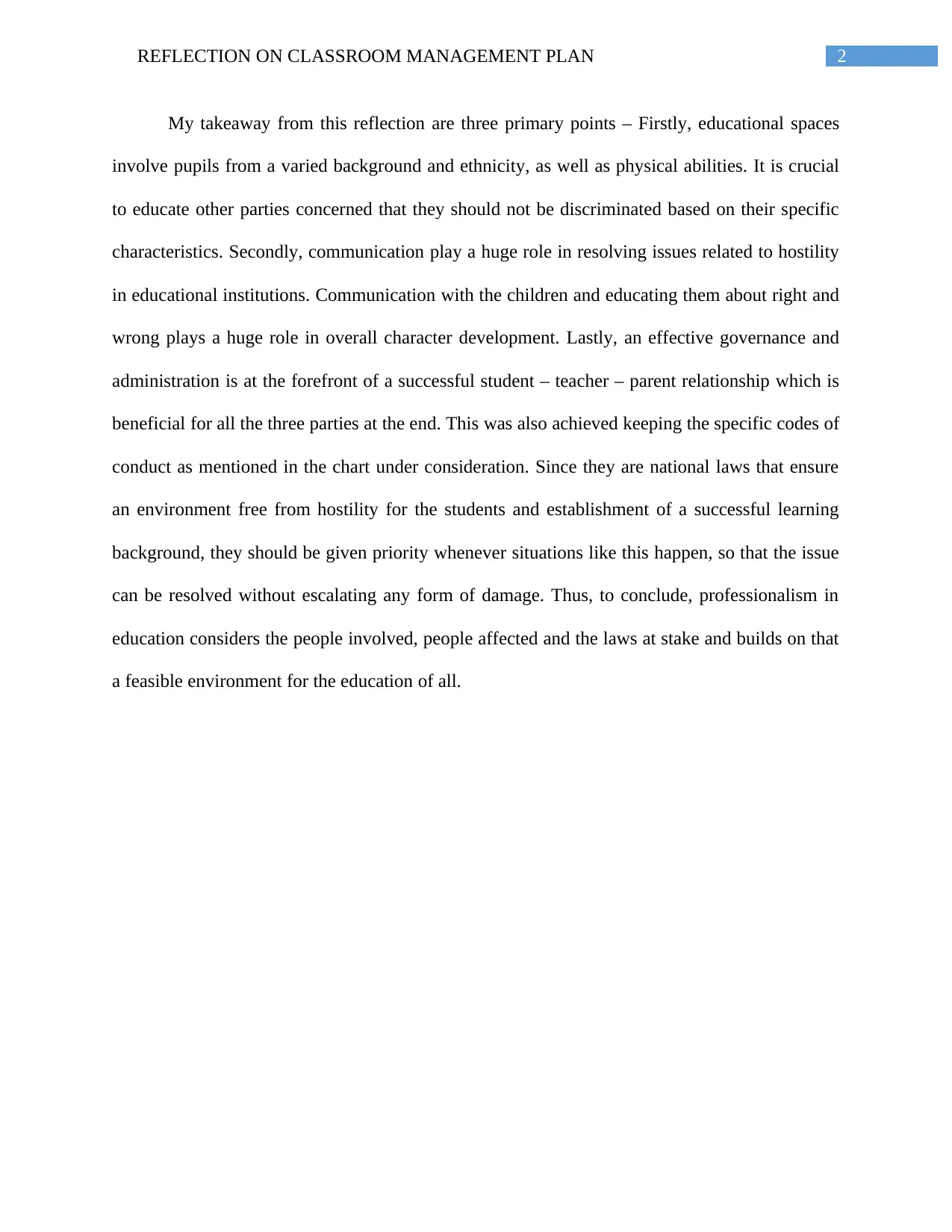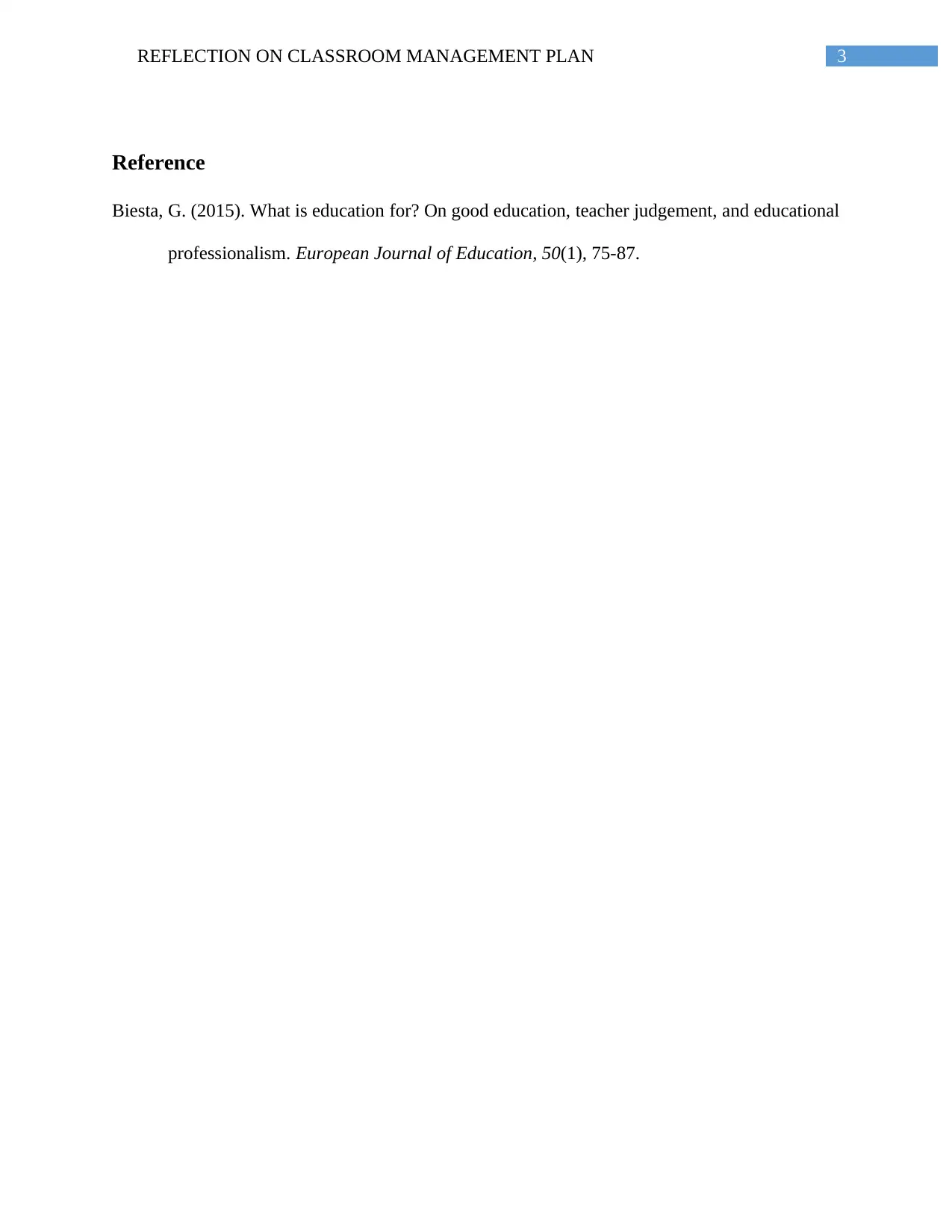Reflection on Classroom Management Plan - ELM-250 Assignment
VerifiedAdded on 2022/11/26
|4
|640
|472
Homework Assignment
AI Summary
This assignment presents a student's reflection on classroom management and student engagement strategies, drawing from the provided assignment brief. The reflection focuses on the importance of teacher professionalism in fostering a positive school culture and collaborative relationships. The student shares a personal experience involving a Hispanic child with a speech disorder, highlighting the significance of addressing bullying, promoting respect for diversity, and maintaining ethical conduct in the classroom. The reflection emphasizes the role of communication, effective governance, and adherence to ethical codes in creating a supportive learning environment for all students. The student also discusses the practical application of student engagement strategies, such as sharing life stories and showing care for students, to motivate and enhance the learning experience. The student's reflection considers the importance of professionalism in education, including student, family, coworker, and administrative interactions, and also includes cited references to support the reflection.
1 out of 4










![[object Object]](/_next/static/media/star-bottom.7253800d.svg)